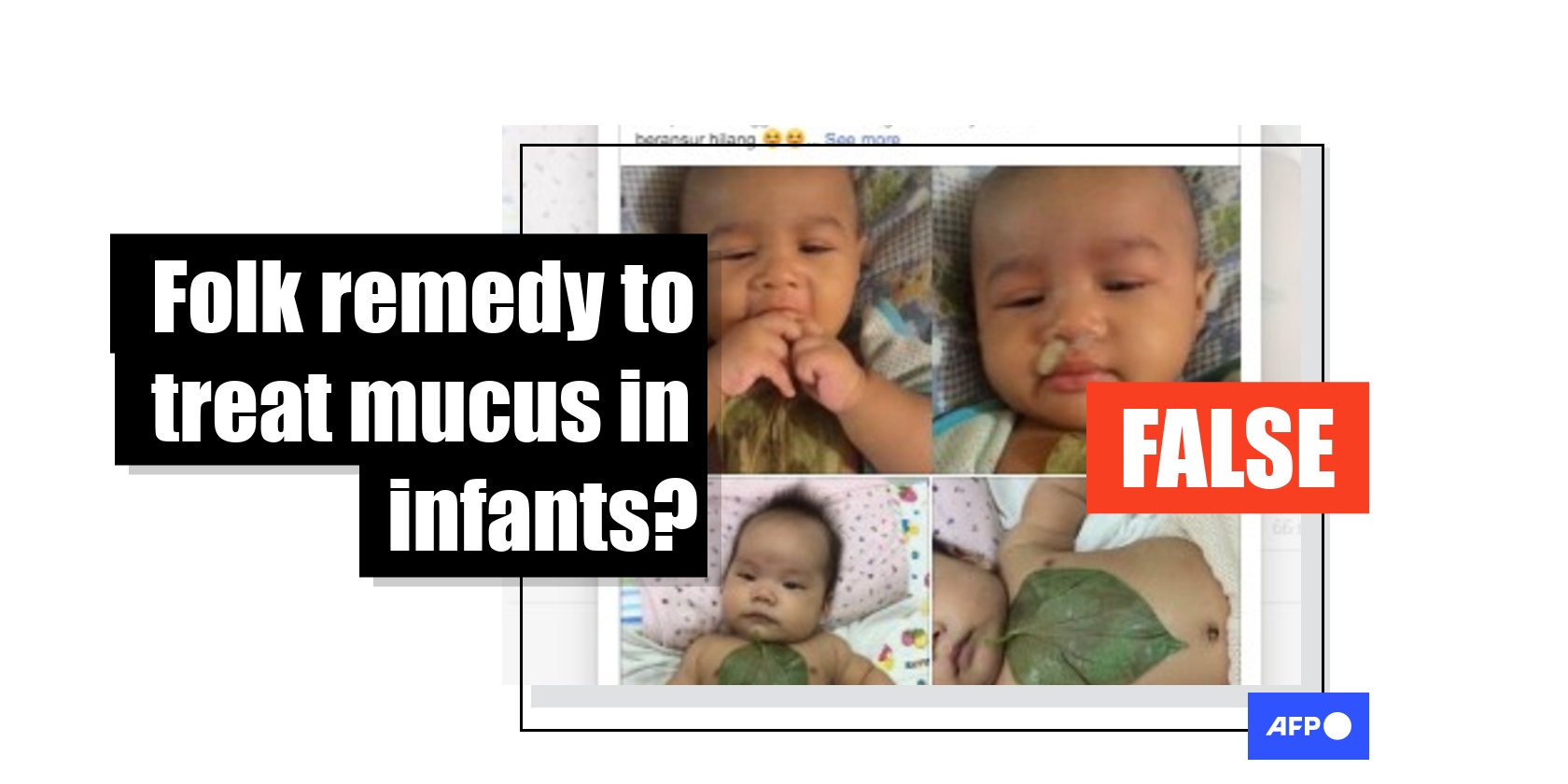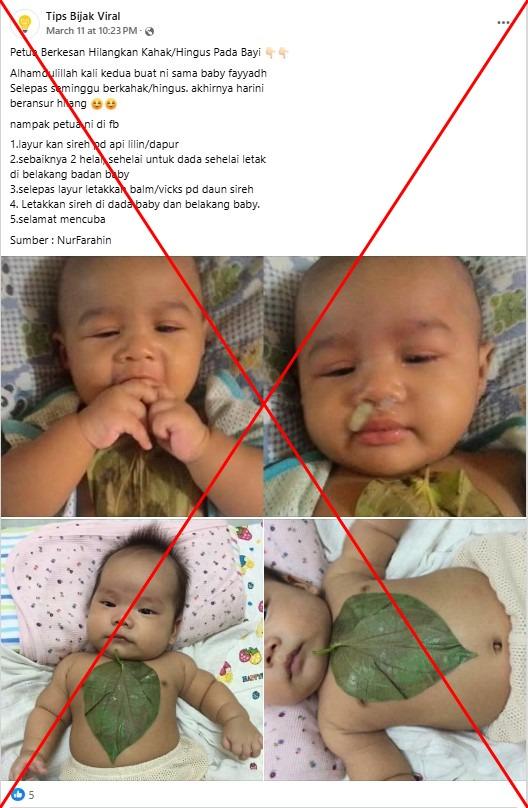
No evidence to support use of warm betel leaves applied to babies' skin to treat phlegm
- Published on April 4, 2025 at 03:57
- 2 min read
- By Najmi Mamat, AFP Malaysia
"This is the second time I've done this for a baby. After a week of phlegm/runny nose. Finally today it's gradually gone," reads part of a Malay-language Facebook post about a purported treatment for excessive mucus in infants on March 11.
The post claims warming betel leaves with a candle or over the stove, then applying them onto a baby's chest and back will make phlegm and snot "disappear".

The folk remedy circulated online as early as 2018 and resurfaced in 2023 and in 2025.
But there is no scientific evidence as yet to support the claim, said paediatricians.
'Inadequate evidence-based studies'
"Currently, there are inadequate evidence-based and well-researched studies that conclusively show the benefits of placing warm betel leaves on babies' skin to reduce respiratory symptoms, such as excessive secretions or cough," said Universiti Kebangsaan Malaysia senior consultant paediatrician Dr Norazlin Kamal Nor (archived link).
Mucus or phlegm in infants may be due to upper or lower respiratory tract conditions that can range in severity from mild to severe and treatment depends on the underlying diagnosis, she told AFP on April 2.
"Some conditions may need antibiotics like bacterial infections, while others may only require supportive management," she said.
Similarly, Dr Faisal Mohd Fadzli, a consultant paediatrician at Malaysia's KPJ Tawakkal KL Specialist Hospital, told AFP on March 21 there is no good scientific evidence supporting the remedy (archived link).
"Applying this unproven treatment might hinder or delay the appropriate treatment and management of the condition, and delay might cause the condition to become more severe."
Both doctors said the safety of using warmed betel leaves in this way and any potential adverse effects must be assessed, as there is a risk of contact allergies or danger of burns from applying overly hot leaves.
There could be potential pathogens on the leaves as well, they said.
AFP has previously fact-checked other folk remedies here and here.
Copyright © AFP 2017-2026. Any commercial use of this content requires a subscription. Click here to find out more.
Is there content that you would like AFP to fact-check? Get in touch.
Contact us
